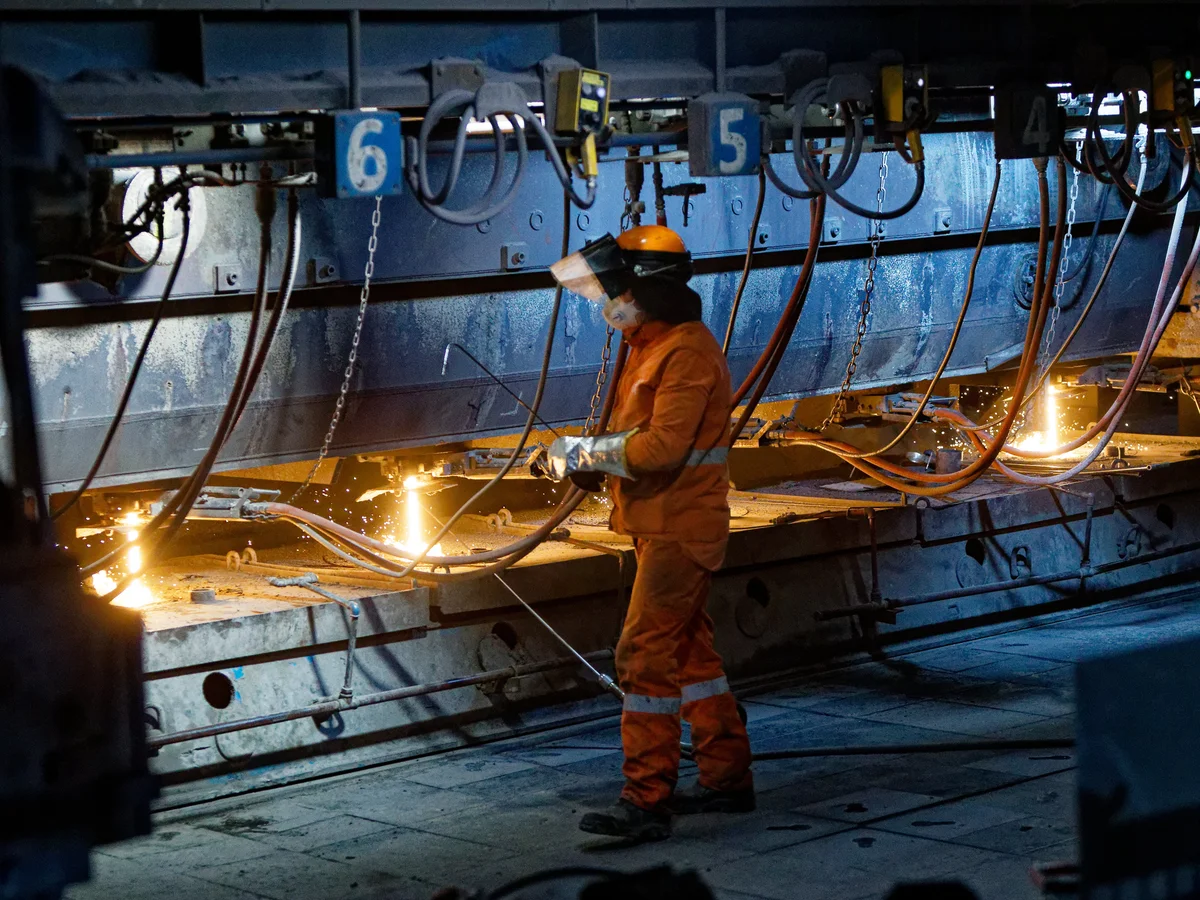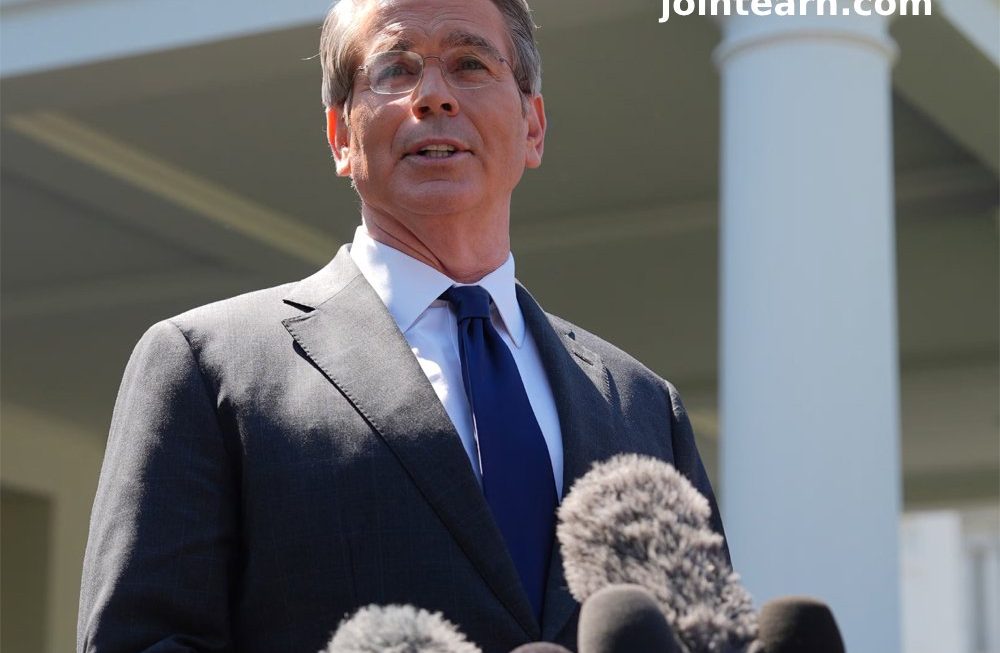The UK and the US share a “mutual interest” in negotiating an exemption from President Donald Trump’s proposed tariffs on steel imports, according to Business Secretary Jonathan Reynolds.
Reynolds told the BBC that the 25% tariff, expected to take effect in March, would have negative consequences for both the UK and the US. He emphasized that the UK’s trade relationship with the US is distinct from other nations, highlighting the country’s ability to provide specialized steel and aluminum exports, such as submarine casings manufactured in Sheffield, which are crucial to the US Navy. He argued that imposing tariffs would only increase costs for American taxpayers.

Government Support and Trade Talks
His comments followed the UK government’s announcement of up to £2.5 billion in financial support for the steel industry. Despite President Trump insisting that the tariffs would apply “without exceptions or exemptions,” Reynolds revealed that he has had “constructive conversations” with key US officials, including the special envoy to the UK. He expressed optimism about “constructive engagement” with the US but acknowledged that negotiations would not be easy.
Reynolds also pointed out that, unlike the EU or China, the UK has a unique case to present regarding its trade relationship with the US. The UK government has stated that it will not take immediate retaliatory measures against the tariffs.
Impact on the UK Steel Industry
Industry representatives have warned of significant repercussions. UK Steel, the organization representing the sector, described the tariffs as a “devastating blow” that could undermine the industry’s £400 million annual contribution to UK-US trade.
While the UK is not a major steel supplier to the US, with exports accounting for only about 10% of total British steel exports, industry leaders fear that the tariffs could have a ripple effect. There are concerns that steel originally destined for the US could instead be offloaded at lower prices in the UK, potentially undercutting domestic producers.
Shadow Business Secretary Andrew Griffith criticized the government for remaining silent on the uncertainty facing the industry, urging stronger engagement with the US.
Government’s Plan for Steel
In response to the industry’s long-term challenges, the government launched a consultation on its Plan for Steel, aimed at revitalizing domestic steelmaking and addressing key issues such as cheap imports. The UK steel industry has been struggling with significant job losses in recent years.
Tata Steel is transitioning to electric arc furnaces at its Port Talbot facility in Wales, a move designed to reduce energy consumption and carbon emissions. This transition led to the closure of traditional blast furnaces in September, resulting in 2,800 job cuts. Similarly, British Steel announced plans in 2023 to shut down blast furnaces in Scunthorpe, replacing them with electric arc furnaces that require fewer workers. This shift has put 2,000 jobs at risk.
Reynolds acknowledged that new technologies would lead to a reduction in workforce numbers but stressed that increasing demand for UK steel could create new employment opportunities.
Key Focus Areas of the Steel Plan
The government’s Plan for Steel aims to tackle longstanding industry challenges, including:
- Expanding domestic steel production.
- Promoting the use of UK-manufactured steel in public infrastructure projects.
- Improving scrap metal processing facilities.
- Investing in electric arc furnaces, which are more energy-efficient and environmentally friendly than traditional blast furnaces.
Additionally, the consultation will explore ways to lower electricity costs for steel companies to enhance global competitiveness, though no firm commitments on reducing energy prices have been made.
Griffiths called for a clear strategy to address high energy costs, which he said are placing “intolerable strain” on the UK steel industry.
Financial Support and Industry Reactions
Financial support for the steel sector will be available through the National Wealth Fund, a government initiative that collaborates with private investors and local authorities to fund infrastructure projects. The fund is expected to benefit steel-producing regions such as Scotland, Scunthorpe, Lincolnshire, Rotherham, and Redcar, which have strong steelmaking histories.
The government also pointed to its backing of Heathrow Airport’s expansion, which is expected to require 400,000 tonnes of steel, as an example of its commitment to supporting the industry.
The GMB union welcomed the government’s efforts, calling the new funding “desperately needed” after years of inaction. The union’s national secretary, Andy Prendergast, emphasized the importance of maintaining domestic steel production for both economic and national security reasons.
Gareth Stace, Director-General of UK Steel, described the government’s commitment as “vital and welcome.” He expressed hope that the forthcoming Steel Strategy, set to be launched in the spring, would help reverse the industry’s decline, especially in the face of growing competition from cheaper imports.
Political and Industry Concerns Over Tariffs
The Liberal Democrats have urged the government to prepare for possible retaliatory tariffs. Deputy Leader Daisy Cooper warned that the UK steel industry is being left “dangerously exposed” to potential economic damage from Trump’s trade policies.
As the consultation process continues, industry leaders and government officials will work towards a strategy to secure the future of UK steelmaking while navigating the challenges posed by global trade tension.












